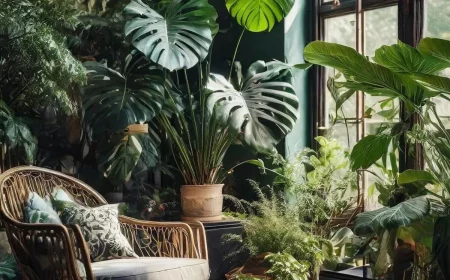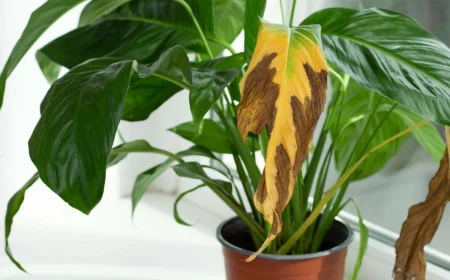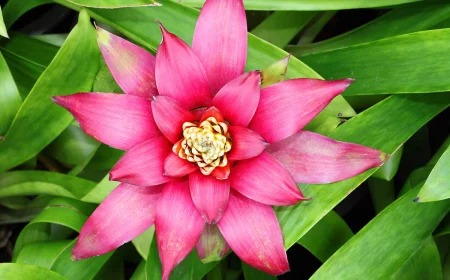Thinking About a Small Pool? An Installer’s No-Nonsense Guide
For years, I’ve been the guy in the muddy boots installing pools in every kind of backyard you can imagine. From sprawling suburban lots to tiny city patios you could barely fit a car in. And you know what the most common request is? Not some massive, resort-style lagoon. It’s for a small, practical pool—a place to cool off, unwind, and actually connect with people without your entire yard becoming a construction zone for a year.
In this article
A small pool is an absolutely fantastic addition to your home. But let’s be real, it’s a serious project. This isn’t like buying a new grill. We’re talking excavation, plumbing, high-voltage electrical, and a deep understanding of how all those things play together. My goal here is to cut through the glossy brochure photos and give you the straight scoop from an installer’s point of view. We’re going to talk about what really matters for a pool that’s safe, lasts for decades, and is a joy to own, not a constant headache.

The ‘Boring’ Stuff That Will Save You Thousands
Honestly, the most expensive mistakes I see happen long before a single shovel hits the dirt. Rushing the planning stage is the number one problem, period. Before you fall in love with a pool shape on Pinterest, you’ve got to do a little homework on your own property. It’s not the fun part, but trust me, it’s the most important.
Your 5-Minute Homework: Zoning and Setbacks
First thing’s first: call your local planning or building department. It’s free and can save you a world of hurt. You need to ask a few key questions:
- What are the pool setbacks for my property? This is the big one. Setbacks are rules that say how far your pool’s edge must be from property lines, your house, septic tanks, and so on. I once had a client who had the perfect spot picked out, only to learn it was two feet too close to the fence. We had to shrink and re-engineer the entire project, which was a frustrating and costly delay.
- What are the safety fence requirements? Don’t guess. They will tell you the exact height (usually 4-5 feet) and the specific rules for a self-closing, self-latching gate. This is non-negotiable.
- Are there any utility easements on my property? An easement is a legal right for a utility company to access a part of your land. You absolutely cannot build on one. Your property survey should show these, but it’s always good to double-check. Building on an easement could lead to a court order to remove your brand-new pool. Ouch.

What’s Under Your Grass?
The ground in your yard is the literal foundation of your pool, and its condition dictates a huge chunk of the cost and complexity. You might have sandy soil that needs extra support during the dig, or you might hit solid bedrock that requires hours of expensive hammering. A good builder will often suggest a soil test to see what you’re up against.
Oh yeah, and we need to talk about groundwater. A high water table creates something called hydrostatic pressure, which is an upward force on the pool shell. I’m not exaggerating when I say I’ve heard horror stories of empty concrete pools literally getting pushed out of the ground overnight after a heavy rain. It looks like a giant bathtub boat sitting in a muddy field. It’s a total catastrophe, and it’s completely preventable with proper drainage and a simple device called a hydrostatic relief valve.

Budgeting for the Whole Enchilada (Not Just the Pool)
Okay, let’s talk money. The price you see for a pool “kit” or shell is just the appetizer. It’s the total project cost that matters. To give you a real-world idea, a small in-ground plunge pool project often starts in the $40,000 to $60,000 range and can go up from there. Don’t let a $15,000 kit price fool you! A realistic budget includes:
- The Pool Shell/Structure: For a small fiberglass shell, you might be looking at $15,000 – $25,000. Concrete is often more.
- Excavation: This can run anywhere from $3,000 to $7,000, assuming we don’t hit a giant boulder or a web of pipes. Access for machinery is a big factor here.
- Installation & Labor: The crew, the crane, the skills. Easily $10,000 – $15,000+.
- Electrical: A licensed electrician is a must. Running a dedicated circuit, a sub-panel, and properly grounding everything for safety is critical. Expect to pay $2,500 – $5,000. This is not a place to save money.
- Decking/Patio: You need a surface around the pool. Even a basic brushed concrete patio can add $5,000 or more. Pavers or stone will be significantly more.
- Fencing: As we mentioned, it’s required by law in most places. A basic safety fence will likely start around $3,000 – $5,000.
- Landscaping: Your yard will look like a disaster zone after construction. Budget at least $1,000 – $2,000 for new sod, plants, and dirt to make it beautiful again.
Quick tip: Grab a garden hose or a long rope. Go out into your yard and lay it down in the shape and size of the pool you’re picturing. Leave it there for a few days. Walk around it. Does it feel too big? Too small? It’s the cheapest and easiest way to visualize the space before you commit tens of thousands of dollars.

Let’s Talk Pool Types: An Installer’s Breakdown
The term “small pool” covers a few different approaches. Choosing the right one is all about your budget, your yard, and how you see yourself using it.
Plunge Pools are the classic small pool. They’re built for cooling off and lounging, not swimming laps, and are typically deep enough (say, 5 to 6 feet) to give you a real sense of immersion. They are perfect for tight city lots. Most are either concrete, which offers total design freedom, or pre-molded fiberglass, which is faster to install. From start to finish, a plunge pool project usually takes about 4 to 8 weeks. It’s a fantastic choice, but the focus on custom shapes and depth means it’s a significant investment.
Spools (Spa + Pool) are amazing hybrids. They have powerful jets and a heater like a spa, but they’re bigger, giving you room to relax. These are awesome for year-round enjoyment, especially if you live somewhere with actual seasons. Heads up, though: the equipment is more complex and expensive. You need a bigger heater (gas is usually best for quick heating) and more power. Your utility bill will definitely notice a spool. Expect a project timeline of around 5 to 10 weeks due to the extra plumbing and electrical work.

Above-Ground Pools (But Make It Fancy). Forget the wobbly metal-sided pools of your childhood. Modern, high-quality above-ground pools are a fantastic option. The key to making them look great is proper installation and creative decking. The single biggest mistake is not preparing a perfectly level base; a pool with thousands of gallons of water on an uneven surface is a recipe for a wall collapse. When we install them, we often sink the pool partway into a hill and build a beautiful wood or composite deck around it. It gives you a custom, in-ground look for a fraction of the cost. This is by far the best value, and installation can be as quick as 1 to 2 weeks once the site is prepped.
The Guts of the Pool: Keeping It Clean and Safe
A pretty pool with gross water is worthless. The circulation and sanitation systems are the life support of your investment, and my job is to install a system that’s effective and easy for you to manage.

Your pump and filter are the heart and kidneys. The pump circulates the water, and the filter cleans it. For small pools, I almost always recommend a cartridge filter. They catch much finer particles than old-school sand filters, and you don’t have to “backwash” them, which wastes a ton of water. You just pull the cartridge out a few times a season and hose it off. Simple and efficient.
For sanitation, most people are choosing saltwater systems these days, and for good reason. It’s important to understand it’s still a chlorine pool; you’re not swimming in the ocean. A generator unit uses a tiny amount of salt in the water to create its own pure chlorine. No more buying and handling harsh chlorine pucks or liquid shock. The water feels softer and less irritating. One installer’s note: salt can be corrosive over time. We have to use salt-friendly equipment and be careful about the type of stone used for the pool coping. Some natural flagstones can flake or degrade if they aren’t rated for a salt environment.

Final Word: Know When to Call a Pro
I get it. The temptation to DIY and save some cash is strong. And a skilled homeowner can definitely handle things like building a simple deck or doing the final landscaping. However, the core of the pool build should be left to experienced pros. No exceptions.
You absolutely need a licensed professional for:
- Excavation and Structural Work: Getting the engineering wrong can lead to a cracked shell or a pool that literally moves.
- All Electrical and Gas Lines: This is a life-or-death safety issue. Water and electricity are a fatal mix if not handled by a licensed electrician who understands pool-specific codes, like the ISPSC.
- Concrete and Plumbing: Applying gunite or shotcrete is a true art form. And trust me, you don’t want to be hunting for a tiny plumbing leak that’s buried under ten tons of concrete.
Building a small pool is a fantastic journey that adds so much joy to your home. By starting with a solid plan, understanding the real costs, and respecting the technical aspects, you set yourself up for a huge success. You’ll be rewarded with a beautiful, relaxing retreat right in your own backyard for years to come.

Inspiration Gallery




The color of your pool’s interior finish dramatically alters the water’s appearance. A classic white or light blue plaster gives you that iconic, crystal-clear turquoise look. For a deeper, more natural lagoon-like vibe, consider a darker finish like a gray or black from a brand like PebbleTec. It creates stunning reflections of the sky and surrounding landscape, turning your small pool into a true design feature.



- Dramatically improved water clarity.
- A softer, silkier feel to the water.
- Reduced need for harsh chemical chlorine.
The secret? A modern saltwater chlorine generator. It uses a small amount of dissolved salt to produce its own chlorine, providing a more pleasant and lower-maintenance swimming experience that’s gentler on skin and eyes.



Is heating a small pool a worthwhile expense?
Absolutely, especially if you want to extend your swimming season into the cooler months of spring and fall. Because of the smaller water volume, a small pool is significantly cheaper and faster to heat than a large one. An efficient electric heat pump is often the perfect solution, allowing you to enjoy a warm dip on a cool evening for a surprisingly low running cost.



According to the U.S. Department of Energy, a pool pump can be one of the most energy-intensive appliances in a home.
This is why investing in a variable-speed pump (VSP) is a game-changer for small pools. Unlike single-speed pumps that run at full blast, a VSP like a Pentair IntelliFlo or Hayward TriStar VS can be programmed to run at lower speeds for filtration, drastically cutting electricity use by up to 90% and paying for itself in just a few seasons.



Fiberglass Shell: A pre-molded shell delivered to your site. Installation is fast (days, not weeks), and the non-porous gelcoat surface is algae-resistant and smooth to the touch. Size and shape options are limited to the manufacturer’s catalog.
Concrete (Gunite): Poured and shaped on-site, offering unlimited design freedom for tricky spaces. The finish can be customized with plaster, pebbles, or tile, but installation is longer and it’s generally a more premium investment.
For speed and ease, fiberglass often wins; for custom shapes in tight yards, concrete is king.



One of the hottest trends in small pool design is the Baja shelf, also known as a sun shelf or tanning ledge. This is a large, shallow area (typically 5-12 inches deep) perfect for placing a couple of Ledge Lounger-style chairs in the water. It’s a sophisticated, resort-like feature that provides a space to cool off without fully immersing yourself—ideal for adults supervising playing kids or simply enjoying a cocktail in the water.



A single pool without a cover can lose hundreds of gallons of water per month just through evaporation.
This isn’t just about refilling your pool; it’s about losing expensive, chemically-treated and heated water. A simple solar cover not only slashes evaporation but also helps retain heat, reducing your heating bills and chemical usage. It’s the single most effective sustainability tool for any pool owner.



Don’t skimp on the filter! A common mistake with small pools is installing an undersized filter to save a few dollars upfront. A larger cartridge or sand filter doesn’t have to work as hard, leading to better water clarity, less frequent cleaning, and a longer lifespan for your equipment. Ask your installer about an oversized filter; it’s a small upgrade that pays dividends in clean water and less work.



Your pool decking is just as important as the pool itself. While classic wood is beautiful, consider modern alternatives for longevity and low maintenance around water.
- Porcelain Pavers: Offer the look of natural stone or wood but are non-porous, stain-resistant, and won’t fade. They’re also incredibly slip-resistant.
- Travertine: A natural stone that stays cool underfoot in direct sun, a huge benefit for a pool patio. Its porous nature provides natural slip resistance.



Create a lush, tropical oasis without the headache of leaves constantly falling in the pool. When landscaping, choose plants with minimal shedding.
- Ornamental grasses like Zebra Grass add height and movement.
- Hardy palms such as the Windmill Palm give a resort feel.
- Succulents like Agave and Echeveria are low-maintenance and add sculptural interest.
- Avoid flowering trees or messy shrubs directly adjacent to the pool edge.



Why is my small pool always cloudy, even when the chemicals are balanced?
The likely culprit is insufficient filtration time. Because the pool is small, owners sometimes assume they can run the pump for just a couple of hours a day. Your entire volume of water needs to pass through the filter at least once or twice daily (called ‘turnover’). Check your pump’s flow rate and do the math; you might need to run it for 6-8 hours, even for a small body of water.



The ‘spool’—a hybrid of ‘spa’ and ‘pool’—is a fantastic, budget-conscious option. Typically smaller than a standard plunge pool, it often incorporates powerful jets for hydrotherapy and a robust heater, making it a year-round feature. While the initial construction cost might be similar to a very small vinyl or fiberglass pool, its smaller volume means significantly lower lifetime costs for heating, chemicals, and water.




Glass Fence: Offers an unobstructed view, making your yard feel larger and more open. It provides a sleek, modern, and high-end aesthetic but requires regular cleaning to look its best and is a premium-priced option.
Aluminum Fence: A durable, low-maintenance, and more budget-friendly choice. Modern black aluminum fences with thin vertical pickets offer a clean, contemporary look that blends well with landscaping without the cleaning demands of glass.



Important note on pool lighting: Don’t settle for a single, harsh overhead light. Modern, low-voltage LED lighting can transform your small pool at night. Consider installing one or two nicheless LED lights, like those from Jandy or Pentair, below the water’s surface. They can change color with the push of a button, creating an ambient glow that turns your pool into the centerpiece of your evening garden.



- A deep, refreshing plunge on a hot day.
- A compact footprint perfect for narrow urban lots.
- A sophisticated, architectural aesthetic.
This describes the classic plunge pool. Inspired by Australian and European designs, these are small, deep pools designed for cooling off and relaxing rather than swimming laps. They’re the ultimate solution when space is tight but style is a priority.



Did you know? Adding an in-ground swimming pool could increase a home’s value by as much as 7%, according to a report by a leading real estate analytics firm.
While you should build a pool for your enjoyment first and foremost, it’s comforting to know that a well-designed, properly installed small pool is not just an expense—it’s an investment in your property and your lifestyle that can provide a real financial return.



Forget manual vacuuming. A modern robotic pool cleaner is a must-have for any pool owner, but it’s especially efficient in a small pool. A compact model like the Dolphin Nautilus CC or a Polaris 9650iQ Sport will systematically scrub the floor and even the walls, operating independently from your pool’s main filter system. It saves you time and helps keep your water sparkling with minimal effort.



Beyond the pool itself, remember to budget for the ‘extras’ that are actually essentials. These often-overlooked costs can add up quickly.
- Electrical Work: A dedicated circuit, bonding, and GFCI protection installed by a licensed electrician is non-negotiable and can cost thousands.
- Fencing: As the main article notes, this is a safety and legal requirement.
- Landscaping & Restoration: The area around your new pool will be a mini construction zone. Budget for sod, plants, or patio repairs.



That moody, reflective, dark water look you see in design magazines comes from a dark interior finish. By absorbing more sunlight, these pools can also be slightly warmer naturally, potentially reducing heating costs. The deep blue or black surface creates a mirror-like effect, reflecting trees and sky beautifully, and it hides small bits of debris that are more visible on a white bottom. A bold choice for a sophisticated result.



The coping is the capstone of your pool’s edge, and the style you choose has a big impact.
Poured Cantilevered Concrete: The deck is poured right up to the pool’s edge and over it slightly, creating a clean, seamless look that is very modern.
Pre-cast Pavers or Stone: Materials like bullnose brick or travertine coping provide a classic, defined border. This can add texture and a contrasting color, framing the water beautifully.



While expensive upfront, high-quality glass tile is one of the most durable pool surfaces available. It is non-porous, impervious to chemicals, and its color will never fade from UV exposure.
For a small pool, tiling the entire interior might be more affordable than you think. Using iridescent glass tile on a feature wall or along the waterline is a surefire way to add a touch of luxury and a dazzling shimmer to the water.



The beauty of a small pool is how it becomes an intimate social hub. Unlike a massive pool where people are spread out, a smaller ‘cocktail pool’ encourages conversation. It’s the perfect place for a few friends to gather with drinks, for a couple to unwind after work, or for parents to be close to their children. It’s less about swimming laps and more about connection.



Warning: The biggest mistake new pool owners make is neglecting their water chemistry. A small body of water is less forgiving than a large one; pH, alkalinity, and sanitizer levels can fluctuate quickly, especially after heavy use or rain. Test your water two to three times a week with a reliable test kit, like a Taylor K-2000, to prevent cloudy water, algae blooms, and potential damage to your pool equipment.


Thinking ahead to winter? Don’t wait for the first frost. A proper closing protects your investment.
- Thoroughly clean the pool and balance the water chemistry one last time.
- Lower the water level below the skimmer line.
- Use a shop vac or compressor to blow all water out of the plumbing lines to prevent freeze damage.
- Add a winterizing algaecide and securely attach a safety cover.










